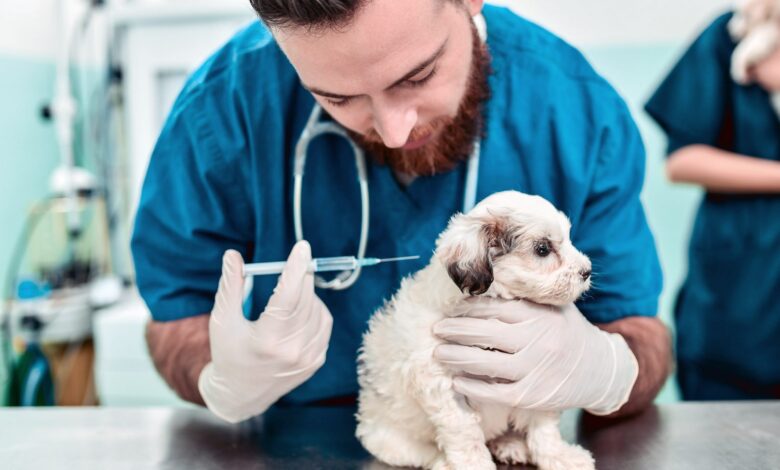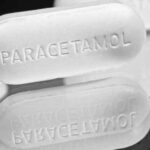What Can I Give My Dog For Pain After Shots?

Vaccinations are critical in helping your dog fight off infectious diseases, many of which can be fatal. Vaccines help prevent many illnesses that affect pets. Vaccinating your pet has long been considered one of the easiest ways to help him live a long, healthy life. Not only are there different vaccines for different diseases, there are different types and combinations of vaccines. Vaccination is a procedure that has risks and benefits that must be weighed for every pet relative to his lifestyle and health. Your veterinarian can determine a vaccination regime that will provide the safest and best protection for your individual animal.
Vaccines help prepare the body’s immune system to fight the invasion of disease-causing organisms. Vaccines contain antigens, which look like the disease-causing organism to the immune system but don’t actually cause disease. When the vaccine is introduced to the body, the immune system is mildly stimulated. If a pet is ever exposed to the real disease, his immune system is now prepared to recognize and fight it off entirely or reduce the severity of the illness. Core vaccines are considered vital to all pets based on risk of exposure, severity of disease or transmissibility to humans.
Pain and vaccines
Injections for vaccinations is a common source of pain in animals including dogs, the pain associated with such injections is sometimes a source of distress for pet owners. Minimizing pain after vaccination or shots can help to prevent distress, development of needle fears and subsequent health care avoidance behaviors.
What can I give my dog for pain after shots?
Some of the most common mild side effects seen after immunization include: Redness, mild swelling, and tenderness at the vaccination site. It is also common for a pet to develop a small, firm nodule at the vaccination site. It should begin to shrink and vanish within 14 days. For pain after shots, you can give your dog 10 – 25 mg/pound orally, up to one adult aspirin every 8 hrs or as needed. Extreme care must be taken that it is dosed properly, as an overdose can result in internal bleeding, organ damage, and seizures.
Are there other possible side effects of vaccination that I should watch for in my pet?
Other less common but more serious side effects can occur within minutes to hours after vaccination. These reactions are considered to be medical emergencies, and you should seek veterinary care immediately if any of the following occur:
- Collapse or fainting
- Difficulty breathing
- Persistent and severe coughing
- Small, red, raised, itchy bumps over the body (hives)
- Swollen or puffy eyes, muzzle, or face
- Persistent vomiting or diarrhea





